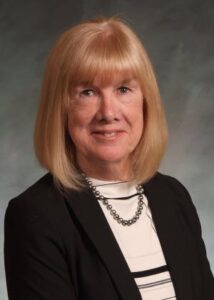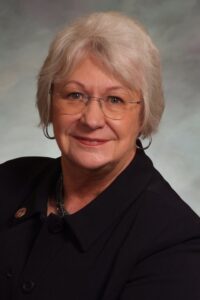by Kaley Day

Colorado’s 2022 legislative session came to a close on May 11th. In a year where continued COVID recovery and an upcoming midterm election loomed, legislators across the aisle came together and championed efforts to advance inclusion, options, and services for individuals with disabilities. Thanks to the exhaustive work of self-advocates, families, community advocates and policymakers alike, five key bills made their way to the governor’s desk and will be highlighted below.
These summaries are not exhaustive.
For the full content of each bill, please visit: http://leg.colorado.gov/bills.
House Bill 22-1376: Supportive Learning Environments for K-12 Students
In an effort to increase transparency and address the emotional and physical wellbeing of students, HB22-1376 aims to improve policies and data collection in relation to issues including chronic absenteeism, suspensions, expulsions, referrals to law enforcement, and perhaps most importantly for students with disabilities, the use of physical restraint (including handcuffing) and seclusion. The Colorado Department of Education will be required to compile and accessibly share data annually while maintaining student privacy standards. Colorado’s Peace Officers Standards and Training (POST) Board will develop and distribute a model policy for the hiring, training, and evaluation of School Resource Officers (SROs).
HB22-1376 also provides updated definitions, new provisions, and protections regarding restraint and seclusion including that:
- The Colorado Department of Education has the authority to enforce complaint decisions regarding the improper use of restraint and/or seclusion.
- Schools must provide written notice to parents and guardians for physical restraints lasting for more than a minute (see full bill text for specific reporting requirements and timeline for implementation).
- Seclusion rooms must include either a window, or video camera if a window is not feasible, to facilitate continual monitoring.
- Seclusion rooms must be safe spaces and not otherwise used for storage, custodial, or office space.

Representative Mary Young (D) – “Thanks to AdvocacyDenver, the Arc of Colorado, Stand for Children and the Children’s Campaign for all of their work that led to the successful passing of HB22-1376. Schools play a crucial role in fostering safety, connectedness, and healthy conditions for students’ learning and development. HB22-1376 will make data about students’ experiences at school more transparent and ensure that students receive targeted support and learn in an environment that is positive, safe, and inclusive. This bill lays a foundation for understanding our learning environments across the state and will provide actionable information to improve the student and educator experience.”
House Bill 22-1107: Inclusive Higher Education Opportunities
In 2016 Colorado legislature established a 5-year pilot for three colleges and universities to run inclusive higher education programs for students with intellectual and developmental disabilities (IDD). Programs focus on four key areas: academic growth, social development, independence, and career advancement. As of 2022, 70 students with IDD have enrolled in these programs where they participate in traditional courses, live on campus, and work towards future career goals. Students who complete their respective program earn a Comprehensive Higher Education Certificate rather than a traditional diploma.
HB22-1107 authorizes a grant program where schools across the state can apply for funding to establish, or expand existing, inclusive higher education opportunities. It requires that the administering entity awards grants to maximize “access and opportunity for all students regardless of demographic or geographic diversity.” The bill also provides for reporting and evaluation of the long-term outcomes of those funded programs and the students who participate.

Representative Mary Bradfield (R) – “As a retired teacher I was happy to support this legislation that expands access to higher education for all learners in Colorado. A good education and the future doors it opens are crucial to the success of our youth. I’m proud to see these opportunities being given our students with intellectual and developmental disabilities.”
House Bill 22-1114: Transportation Services for Medicaid Waiver Recipients
Access to reliable, affordable transportation is a major barrier for many individuals with disabilities when trying to reach vital services, employment, and their communities at-large. For those who rely on transportation services available under a Medicaid home- and community-based waiver the options are limited and “often inefficient and overburdened.”
HB22-1114 seeks to expand the available options for Medicaid waiver recipients by authorizing and reimbursing transportation network companies such as Uber and Lyft to provide nonmedical transportation. This authorization will occur no later than July 2024 after a state reporting process to identify a reimbursement system, compliance with federal law and waiver requirements, and best practices.

Representative Alex Valdez (D) – “HB22-1114 improves the lives of people with intellectual and developmental disabilities by eliminating barriers when it comes to choices in transportation. Many adults with disabilities lack sufficient access to reliable, accessible, and safe modes of public and private transportation. This bill addresses these barriers by offering the same choices in transportation that are already available to people without IDD. Covering private transportation under certain Medicaid waiver services will allow people with IDD to participate more fully in their communities, employment, recreation, and relationships.”
House Bill 22-1320: Achieving A Better Life Experience Savings Account
Income and asset limits for assistance programs like Supplemental Security Income (SSI) and Medicaid have significantly hindered individuals with disabilities’ ability to save money, make large purchases, and plan for the future. Since 2017, Coloradoans who were determined disabled before the age of 26 have had access to tax-free Achieving a Better Life Experience (ABLE) accounts that allow an individual and their families to save and invest without losing eligibility for those needs-based benefits.
HB22-1320 makes three major modifications to the existing law that improves accessibility and benefits for those who are eligible:
- A person other than the account owner (such as a family member or other support) can establish and administer an account on behalf of the individual with a disability.
- As of January 2023, accounts will be protected from “Medicaid claw-backs”, or the practice of the state claiming and retrieving funds for reimbursement of Medicaid expenses upon a beneficiary’s death.
- Contributions made to an ABLE account may be deducted when determining state taxable income.

Representative Colin Larson (R) – “I was honored to work with Rep. Cathy Kipp and Senators Zenzinger and Woodward on this bipartisan bill. It is a historic step forward for providing financial stability, certainty, and independence for thousands of individuals with disabilities and their families. By bringing tax deductibility to and ending the claw-back provisions for 529 ABLE accounts, Coloradoans with disabilities can now earn and save without fear of losing the services they rely on.”
House Bill 22-1303: Increase Residential Behavioral Health Beds
Ensuring appropriate care for the mental and behavioral health needs of all Coloradoans has been an issue for the state both prior to and compounded by the COVID-10 pandemic. Lack of available beds in treatment facilities has left many, including those with a dual diagnosis and those awaiting competency restoration, without access to critical stabilization and longer-term care.
HB22-1303 appropriates nearly $42 million in federal funds received by the state through the American Rescue Plan Act for renovations and the creation of at least 16 additional inpatient beds at the Fort Logan mental health institute and at least 125 additional beds at residential facilities across the state. Beds at Fort Logan must first be used to address the backlog of those awaiting competency services before accepting civil patients. Residential facility beds are prioritized for those with severe mental illness or co-occurring diagnoses.
Statute includes additional provisions such as:
- Minimum standards for services at mental health residential facilities including assistance with medication and activities of daily living, case management services, life skills trainings, and non-medical transportation.
- Future establishment of admissions criteria, discharge planning, quality assurance monitoring, and federal compliance for mental health residential facilities.
- Licensing entities and timelines, including that aa of July 1, 2023, the Behavioral Health Administration will be responsible for licensing of those facilities.

Senator Jim Smallwood (R) – “HB22-1303 is critically important, bi-partisan legislation that should make real progress statewide helping adults with urgent behavioral health needs who need long-term services and support. We have heard from citizens and law enforcement for years about the lack of facilities to provide integrated care to these populations and specifically, individuals awaiting competency restoration services.”
Additional Successes to Celebrate
- Senate Bill 22-127 appropriates $80 million to the Department of Education for special education programs across the state. The bill provides an increased per-student distribution of $1,750 and requires that amount to increase by the rate of inflation each budget year beginning in 2024.
- Key language in the amendments of House Bill 22-1278 (creation of the Behavioral Health Administration) ensures that people with co-occurring IDD and mental health diagnoses are not turned away from services due to their primary diagnosis or need for assistance with activities of daily living.

Kaley Day is an Advocate for Adults with AdvocacyDenver.
She is a graduate of the University of Denver, and a sibling to a young man with disabilities. Kaley publishes Policy Perspective featuring interviews with state policymakers and community members on issues that affect the work and mission of AdvocacyDenver.
For questions or comments, contact Kaley at kday@advocacydenver.org